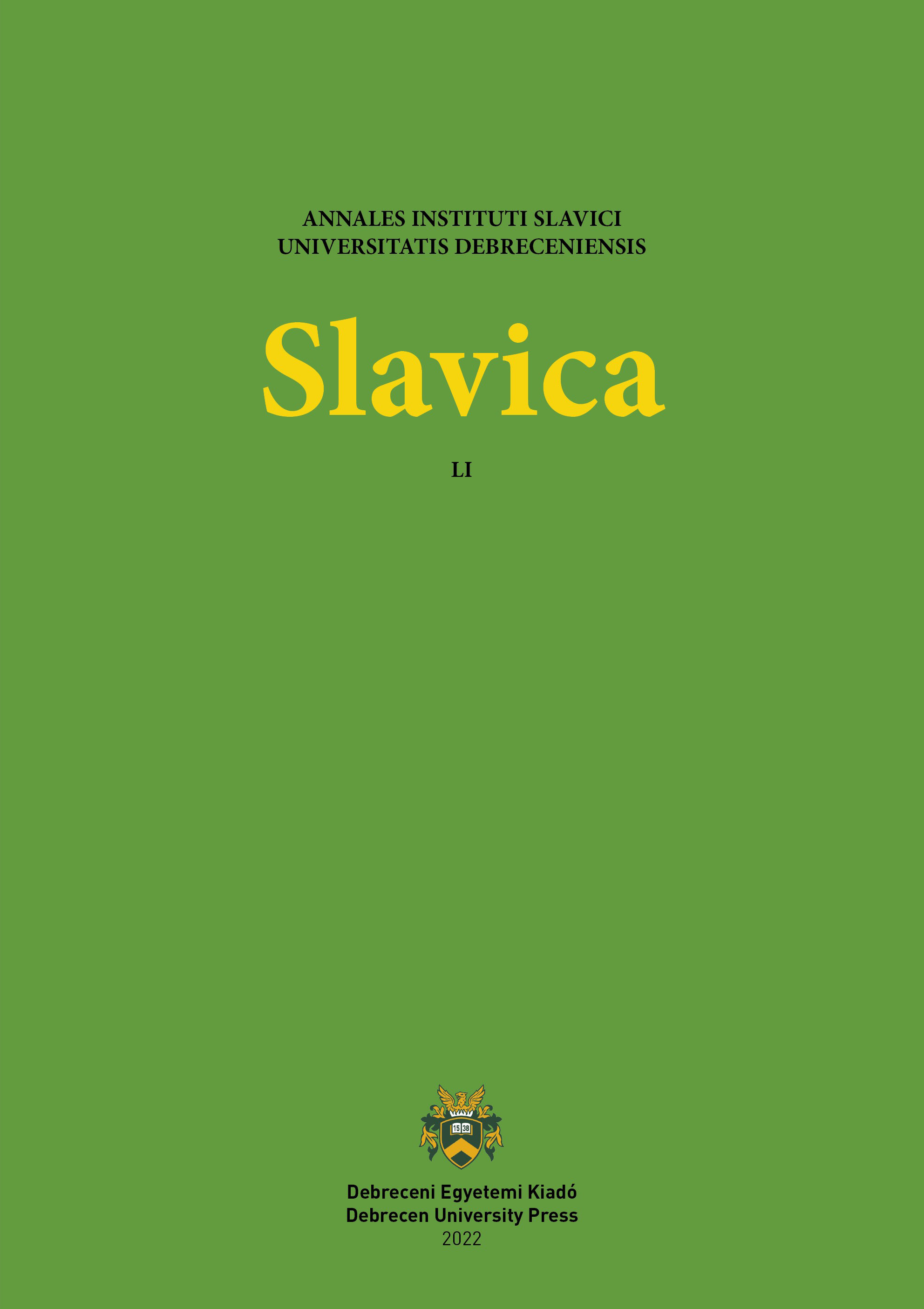Peculiarities of the Historiosophic Content of M. V. Lomonosov's Odes for The New Year 1762 and 1764
Authors
View
Keywords
License
Copyright (c) 2022 Slavica

This work is licensed under a Creative Commons Attribution-NonCommercial 4.0 International License.
This is an open access article distributed under the terms of the Creative Commons Attribution License (CC BY-NC 4.0), which permits unrestricted use, distribution, and reproduction in any medium, provided the original author and source are credited.
How To Cite
Abstract
The paper deals with the formation of artistic historiosophy in the Russian literature of the 18th century. The main attention in the study is focused on the odic works of M.V. Lomonosov. The research demonstrates that in his odes Lomonosov used not only constant historiosophemes and ideologemes obtained from the general storehouse of philosophical, historical and political knowledge of his time, but also his own historiosophemes. The analysis of the two insufficiently studied M.V. Lomonosov's works – "… on Accession to the Throne and for the New Year 1762" and "… for the New Year 1764" – shows that an individualized historiosophic concept was developed in them. The range of Lomonosov‘s main historiosophic ideas is revealed, for example, summing up reign, the prosperity of Russia under the power of the House of Romanovs, "golden times", the dying and reviving god, and generally useful work for the benefit of Russia.

 https://doi.org/10.31034/051.2022.03
https://doi.org/10.31034/051.2022.03